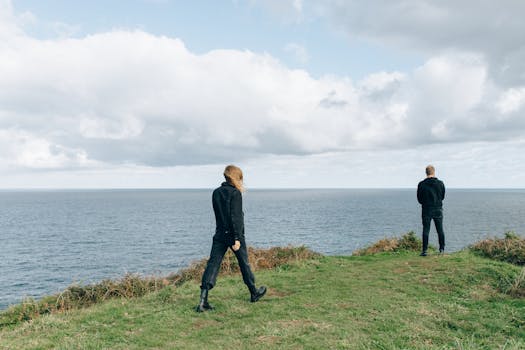Advantages and Disadvantages of Solo Hiking: Personal Experience and Feelings
Solo hiking is an exhilarating experience that many outdoor enthusiasts cherish. It offers a unique opportunity to connect with nature, reflect on personal thoughts, and challenge oneself physically and mentally. However, like any activity, it comes with its own set of advantages and disadvantages. Drawing from personal experiences and insights, this article explores the multifaceted nature of solo hiking.
The Advantages of Solo Hiking
Embarking on a solo hiking journey can be incredibly rewarding. Here are some of the key advantages:
- Self-Discovery: Hiking alone allows for introspection and self-discovery. Without the distractions of conversation, one can delve into their thoughts and emotions, often leading to personal revelations.
- Freedom and Flexibility: Solo hikers have the freedom to choose their own routes, pace, and schedule. This flexibility can enhance the overall experience, allowing for spontaneous detours and extended breaks.
- Connection with Nature: Being alone in nature can deepen one’s appreciation for the environment. The solitude allows for a more profound connection with the surroundings, making the experience more immersive.
- Building Confidence: Successfully navigating a trail alone can significantly boost self-confidence. Overcoming challenges without assistance fosters a sense of accomplishment and independence.
- Mindfulness and Presence: Solo hiking encourages mindfulness. The absence of distractions allows hikers to be fully present, enhancing their sensory experiences and promoting mental well-being.
For instance, during a solo hike in the Rocky Mountains, I found myself captivated by the serene beauty of the landscape. The quietness allowed me to reflect on my life choices, leading to a newfound clarity about my career path.
The Disadvantages of Solo Hiking
While solo hiking has its perks, it also presents several challenges that should not be overlooked:
- Safety Concerns: Hiking alone can pose significant safety risks. In case of an accident or emergency, there may be no one to assist or call for help.
- Isolation: The solitude that many find appealing can also lead to feelings of loneliness or isolation. This emotional aspect can be particularly challenging during long hikes.
- Limited Social Interaction: For those who thrive on social connections, solo hiking can feel isolating. The lack of companionship may detract from the overall enjoyment of the experience.
- Navigation Challenges: Without a partner to share navigation duties, solo hikers must rely solely on their skills. Getting lost can be a daunting experience, especially in unfamiliar terrain.
- Physical and Mental Strain: The physical demands of hiking can be amplified when done alone. Additionally, the mental strain of solitude can lead to fatigue or anxiety.
During one of my solo hikes in a dense forest, I encountered a sudden change in weather. The isolation became overwhelming as I struggled to navigate back to safety, highlighting the importance of preparation and awareness.
Personal Reflections on Solo Hiking
My experiences with solo hiking have been a mix of joy and challenge. The moments of tranquility, where I could hear nothing but the rustling leaves and chirping birds, were profound. However, there were times when the weight of solitude felt heavy, especially during long stretches without human contact.
One of the most significant lessons I learned was the importance of preparation. Carrying a reliable map, a first-aid kit, and a means of communication can mitigate many risks associated with solo hiking. Additionally, sharing your itinerary with someone can provide an extra layer of safety.
Conclusion: Weighing the Pros and Cons
Solo hiking is a deeply personal experience that can lead to significant self-discovery and connection with nature. However, it is essential to weigh the advantages against the disadvantages. The freedom and introspection that come with hiking alone can be incredibly fulfilling, but safety and emotional well-being should always be prioritized.
Ultimately, whether you choose to hike solo or with companions, the key is to be prepared and aware of your surroundings. Embrace the journey, learn from each experience, and enjoy the beauty that nature has to offer.
